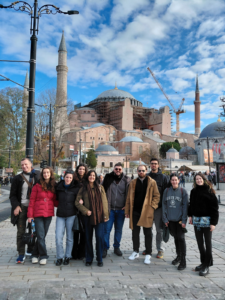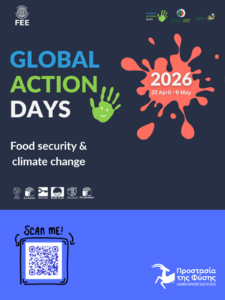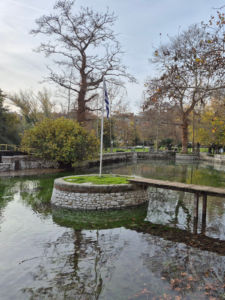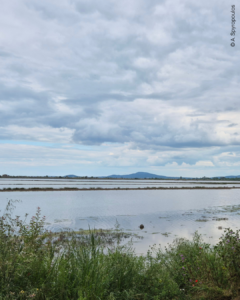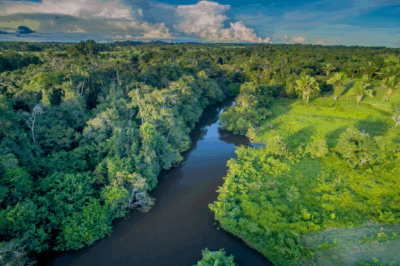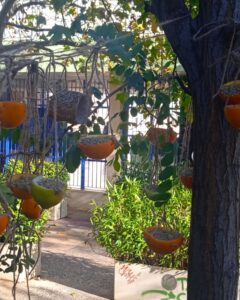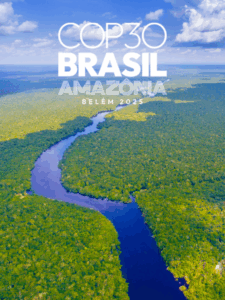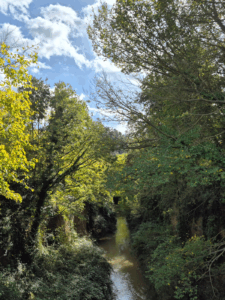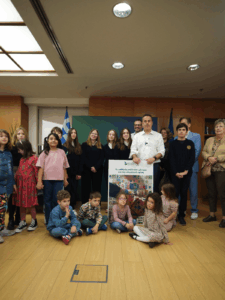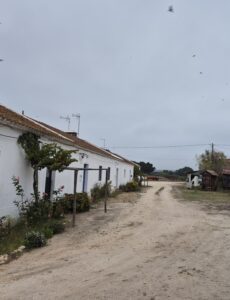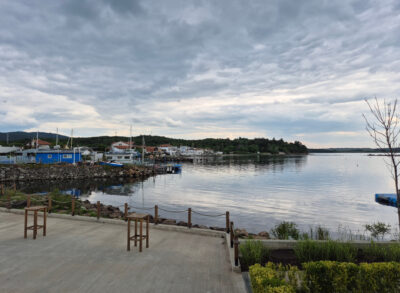December 23, 2025
International Workshop on Environmental Education and Ocean Literacy and Final Conference of the EOL Project in Istanbul
On 12 December 2025, the International Workshop on Policy Recommendation Co-Design for Environmental Education and Ocean Literacy was h...
December 22, 2025
Global Action Days 2026
Are you ready to make a difference? Join us in the Global Action Days 2026 campaign, a fifteen-day celebration dedicated to food securi...
December 16, 2025
Small Talks on Ocean Literacy and the Black Sea continue in Drama, Thessaloniki, and Kavala
Bringing the Black Sea a little closer to all of us, over the past months we have continued to place strong emphasis on informing and r...
December 3, 2025
A small discussion on the Black Sea and Ocean Literacy in Kavala and Thessaloniki!
The Hellenic Society for the Protection of Nature is delighted to invite you to the seminars “A small discussion on the Black Sea and O...
November 27, 2025
COP30 IS OVER. ONCE MORE, LESS THAN WE EXPECTED…
COP30 IS OVER.
ONCE MORE, LESS THAN WE EXPECTED…
COP30 began with torrential rains that flooded the streets around the conference ...
November 25, 2025
Action “Tree treat – a delicacy for animals and birds”
Christmas is approaching and the Hellenic Society for the Protection of Nature, national operator of the international network "Learnin...
November 14, 2025
FEE Teachers’ Award & Lesson Plan Competition 2025-2026
The Foundation for Environmental Education (FEE) is establishing for the 4th school year:
The FEE Teacher Award, which aims to rec...
November 10, 2025
COP30 ΙS UNDER WAY: WHAT CAN WE EXPECT UNDER THE CURRENT CONDITIONS
Exactly ten years ago, at the 21st Conference of the Parties to the United Nations Framework Convention on Climate and Climate Change (...
November 6, 2025
HSPN at the Global Ecotourism Forum 2025
The Global Ecotourism Forum 2025 was successfully concluded from October 22 to 24 in the village of Sant Fruitós de Bages and the Monas...
November 3, 2025
Thousands of students send a powerful message for the environment ahead of COP30
The Hellenic Society for the Protection of Nature (HSPN) and WWF Greece delivered over 5,600 letters from students across Greece to the...
October 17, 2025
The Second TOPIO Autumn School in Portugal
Last week, we were in Portugal at the Charneca Landscape Observatory (Observatório da Paisagem da Charneca) in the Municipality of Cham...
September 30, 2025
Ocean Literacy and the Black Sea: a “small” discussion at the Axios Delta Information Center (NECCA)
In mid-September, the Hellenic Society for the Protection of Nature hosted and coordinated the event “A small discussion on Ocean Liter...





